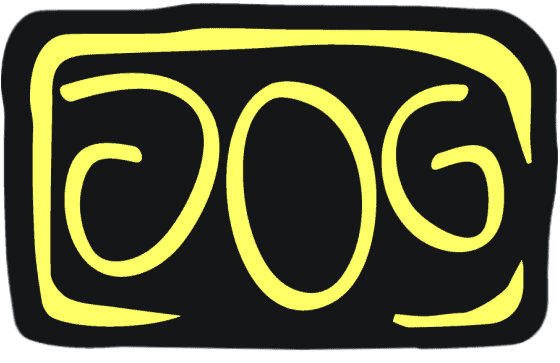In 1992, Radiohead released “Creep,” unaware of its profound impact on their career and relationship with their audience. The song became their breakthrough hit, catapulting them to the forefront of alternative rock. While “Creep” gained popularity and became an anthem for many, its success also brought expectations and pigeonholing. As Radiohead evolved and explored new musical territories, they wanted to distance themselves from being solely associated with the sound and sentiment of “Creep.” The song’s enduring popularity overshadowed their subsequent work, frustrating the band as it limited recognition of their versatility and depth as musicians. Radiohead’s frustration stemmed from their desire to be acknowledged for their entire body of work, not confined to a single song or style.
One-trick pony
The term “one-trick pony” is an idiomatic expression used to describe someone or something that excels or stands out in a single specific area or skill. The origin of the term can be traced back to circus shows, where a pony or small horse would be trained to perform a single impressive trick or act. While being a “one-trick pony” doesn’t necessarily diminish the value or importance of the particular skill or talent someone possesses, it implies a limitation or overreliance on that specific skill or talent. The term is often used to suggest a lack of adaptability or the inability to diversify and expand beyond the singular area of expertise.
Specialization
When it comes to understanding the world around us, we often have a reductionist tendency. It’s a natural inclination rooted in the way our minds work and the limitations of our cognition. We seek simplicity and clarity, and as a result, we often simplify complex ideas and systems to make them more digestible.
We find comfort in breaking things down into smaller, more manageable parts. It allows us to grasp the fundamental aspects and gain a sense of understanding. However, in doing so, we may unintentionally overlook the richness and depth that exist in the complexity itself.
In addition, we specialize in specific subjects and become experts in those areas. This specialization enables us to acquire deep knowledge, but it also narrows our perspective. We might become so immersed in our specialization that we lose sight of the interconnectedness between different disciplines and fail to appreciate the broader tapestry of knowledge.
Moreover, in our pursuit of efficiency and practicality, we often categorize and generalize information. We create mental shortcuts and patterns that help us make sense of the vast amount of data we encounter daily.
Social media
In our digital age, for instance, social media platforms have become an integral part of our lives. When we engage with social media, we often encounter an abundance of content in the form of posts, tweets, and photos. To navigate this vast sea of information, we find ourselves relying on quick judgments and simplified categorizations. We tend to reduce complex ideas and nuanced perspectives into bite-sized, easily digestible snippets. While this simplification allows us to process a large volume of content, it can also lead to oversimplification and the loss of important context and depth.
Moreover, the algorithms that power social media platforms often amplify this reductionist tendency. They analyze our preferences, interactions, and online behavior to personalize our content feeds. While this personalization can enhance our user experience, it can also create echo chambers and filter bubbles. We are more likely to see content that aligns with our existing beliefs and interests, which can reinforce our reductionist perspectives and limit exposure to diverse viewpoints.
The emphasis on popularity, metrics, and aesthetics can create pressures that may hinder authenticity and promote conformity.
Many of us use social media platforms as a means to express our perspectives, share our work, and engage with communities that align with our interests. The platforms have undoubtedly provided opportunities for people to showcase their talents and gain exposure that might not have been possible otherwise.
However, it’s equally important to acknowledge the challenges and limitations inherent in the social media landscape. The emphasis on popularity, metrics, and aesthetics can create pressures that may hinder authenticity and promote conformity.

Image Crafting and Perfectionism
The curated nature of profiles and the pursuit of validation can lead to a reductionist approach, where we may feel compelled to present a simplified and idealized version of ourselves, emphasizing the positive aspects, filtering out the less desirable ones and making it difficult to embrace and express them.
Fear of Judgment and Rejection
The social environment can foster a fear of judgment and rejection, as we compare ourselves to others and seek validation through likes, comments, and followers. This fear may discourage us from sharing our true selves, as we may worry about being misunderstood or facing negative reactions.
Oversimplification and Attention Economy
In the fast-paced and information-saturated online world, attention is a scarce resource. To capture and maintain attention, content often needs to be brief, condensed, easily digestible and simplified. This can lead to a tendency to reduce complex ideas, emotions, and experiences into bite-sized, easily consumable forms, potentially diluting the authenticity and nuance of personal narratives.
Social Norms and Conformity
Social environments, both online and offline, often establish certain norms and expectations. These norms can create pressure to conform, discouraging us from expressing our multifaceted and complex identities. The desire to fit in and avoid judgment can lead to self-censorship and the suppression of authentic aspects of ourselves.
Commercialization and Branding
The influence of commercial interests can further contribute to the reduction and control of personal expression. Social media platforms are often used as marketing tools, promoting products, services, and personal brands. This can lead individuals to tailor their content and self-presentation to align with marketable trends and industry expectations, potentially sacrificing authenticity and complexity.
These social tendencies arise from a combination of human nature, societal pressures, and the design and structure of social media platforms.
Additionally, algorithms and commercial interests can shape the content users are exposed to, potentially limiting the visibility of diverse voices and perspectives. These dynamics can contribute to an environment where authenticity and complexity are not always prioritized or celebrated.
Continue reading in One trick pony – part 2
You may also like
What if we were successful, famous and wealthy
We live in a society that values achievement and status,…
Create a Christmas that’s yours
It's this time that is brimming with high expectations for…





